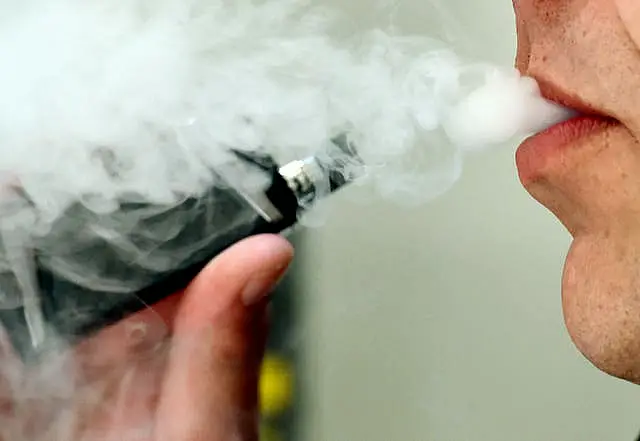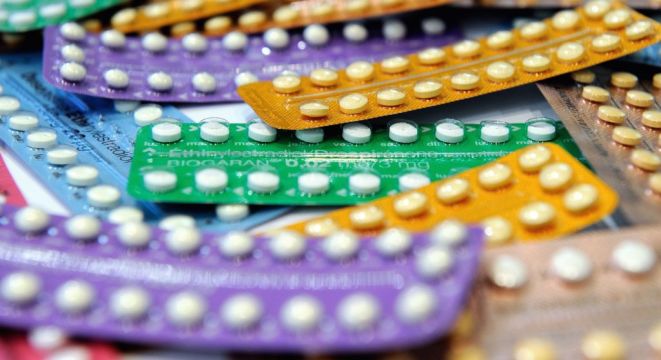Calls for “urgent action” to address sex education in schools have been made after new figures revealed an increase in the number of young people not using contraception.
Research by University of Galway shows that just under half of young people reported no condom use at their “last sexual intercourse”.
The report has shed new light into the health behaviours of children and adolescents in Ireland, which researchers said emphasises areas of progress and concern that require urgent attention.
Commissioned by the Department of Health, the findings are from the latest Irish Health Behaviour in School-aged Children (HBSC) survey conducted in 2022.
More than 9,000 children, from a representative sample of 191 primary and post-primary schools nationwide, were asked to report on a series of questions related to their lifestyles, behaviours and experiences.
It revealed that one in four 15- to 17-year-olds report ever having sex, which remained the same as in 2018 (25 per cent).
Almost half (48 per cent) of those said that they or their partner used a condom at their last sexual intercourse, which is a decrease of 14 per cent compared to 2018.
And 34 per cent of those who report having sex also report that they or their partner used no contraception at their last sexual intercourse, compared to 22 per cent in 2018.
The report reveals that there is no statistically significant difference by gender.

Overall, 26 per cent of 15- to 17-year-old boys and 24 per cent of 15- to 17-year-old girls report that they have ever had sexual intercourse.
Overall, of those who report ever having had sexual intercourse, there is a statistically significant difference by gender in reporting condom use and in reporting birth control pill use, with girls more likely than boys to report that they or their partner used either a condom or the birth control pill at last sexual intercourse.
There is no statistically significant difference by gender in reporting the use of any other methods of contraception at last sexual intercourse.
In its findings for children aged 10- to 17-years-old, it was found that 69 per cent of children reported never drinking alcohol, compared to 66 per cent in 2018, and 9 per cent reported having ever smoked, compared to 12 per cent in 2018.
The research also revealed that girls and older children were more likely to report use of vapes.
Some 18 per cent report having ever used vapes or e-cigarettes and 13 per cent report having ever used vapes or e-cigarettes in the last 30 days.
Older teenage girls are less likely to report high levels of life satisfaction, happiness and wellbeing, with some 54 per cent of 10- to 17-year-old girls reporting high life satisfaction, compared to 69 per cent of boys.
The research shows 22 per cent of girls and 33 per cent of boys reported feeling very happy with their lives at present.
Girls, younger children and children from lower social class groups are more likely to report being victims of cyberbullying once or more in the past couple of months.
Some 18 per cent reported being cyberbullied, compared to 15 per cent in 2018, and 9 per cent reported having taken part in cyberbullying, with boys and those from lower socioeconomic groups more likely to have reported taking part.
The report found some positive findings around dietary behaviour, with more children eating fruit and vegetables.
One in four children report eating fruit and 23 per cent report eating vegetables every day.

However, 19 per cent of children reported never having breakfast on school days; 18 per cent reported having gone to school or bed hungry because there was not enough food in the house and 13 per cent report trying to lose weight.
It also found that 10 per cent of girls reported experiencing period poverty, which is defined as being unable to afford period products.
Some 85 per cent of children report always or sometimes using sunscreen on a sunny day, compared to 80 per cent in 2018; and 75 per cent of children reported having been sunburnt at least once last summer.
Dr Andras Kolto, senior postdoctoral researcher at the Health Promotion Research Centre at University of Galway, said: “The decline in condom use, and overall contraception use among adolescents is alarming.
“With only 48 per cent reporting condom use at the last sexual intercourse, and a notable increase in those using no contraception, urgent action is needed to address Relationships and Sexuality Education in schools, to enhance education for young people and increase access to resources, such as sexual health services for our youth.”
Aoife Gavin, senior researcher at the Health Promotion Research Centre, and lead author of the report, said: “Findings concerning wellbeing, happiness and life satisfaction, particularly among older teenage girls are deeply troubling.
“While the impact of Covid-19 can be seen to exacerbate these challenges, it’s crucial to recognise that this trend existed pre-pandemic.
“This is now a longstanding issue requiring immediate attention and while further research is underway to understand these findings, interventions are imperative to reverse this concerning trajectory and to ensure the wellbeing of our youth.”
Professor Kelly emphasised the need for continued data collection: “This data is not merely numbers – it is the foundation upon which effective policy and society changes are built.
“Without robust data and thorough analysis, we cannot hope to enact meaningful improvements in the lives of children in Ireland.
“Our ambition remains clear: to collect data that informs evidence-based recommendations, driving positive policy changes that will enhance the well-being of future generations.”







